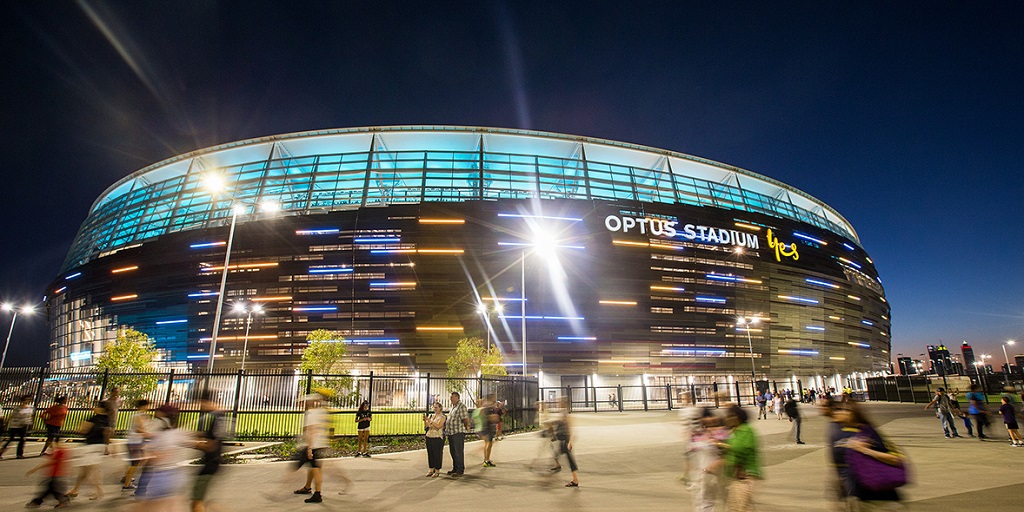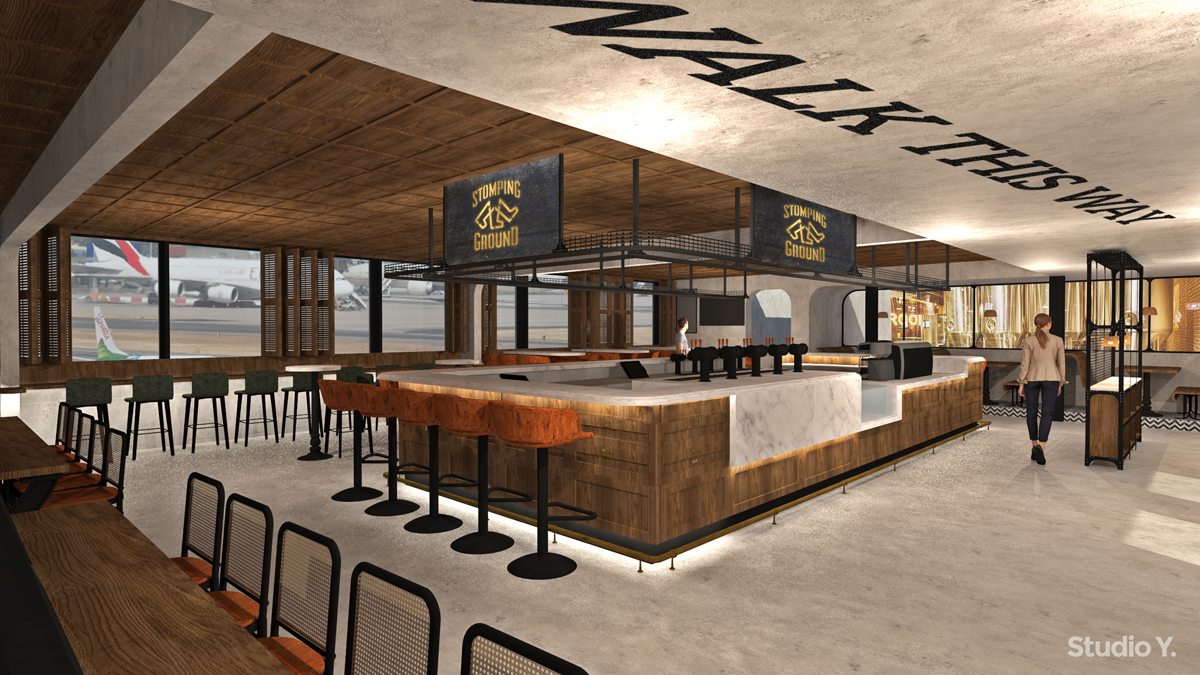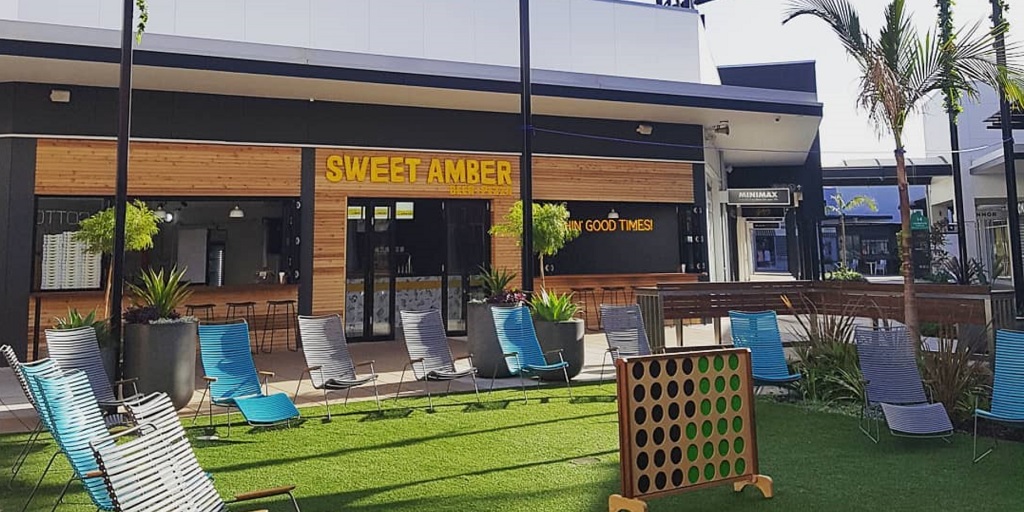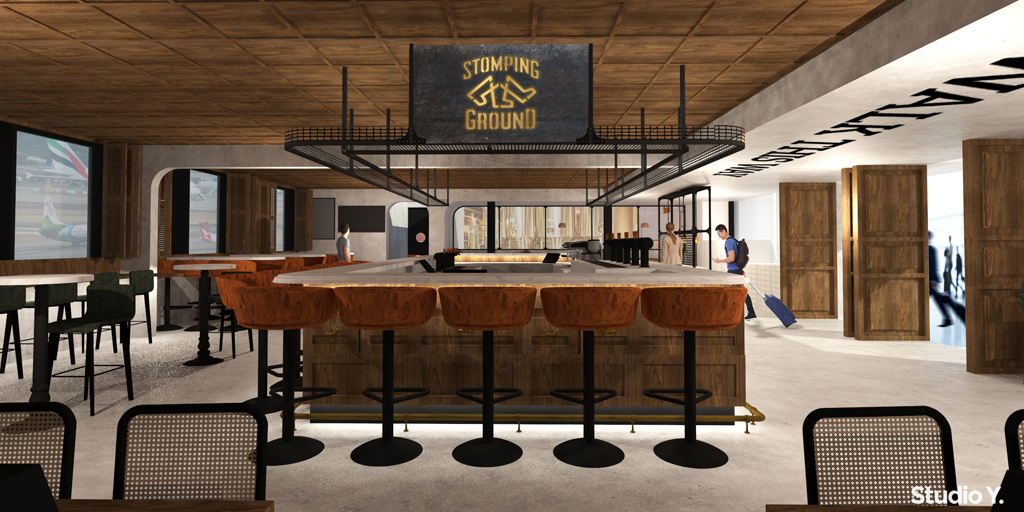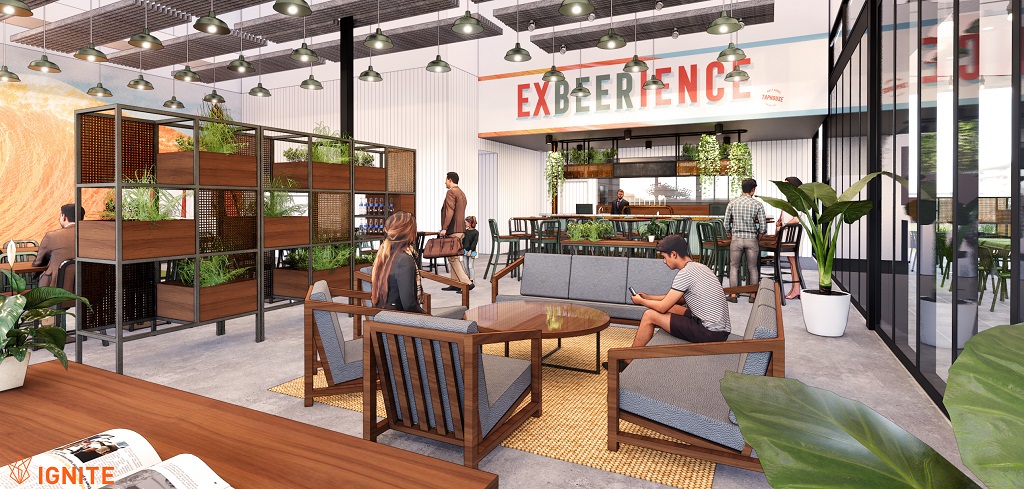
Shopping centres provide a new home for craft beer
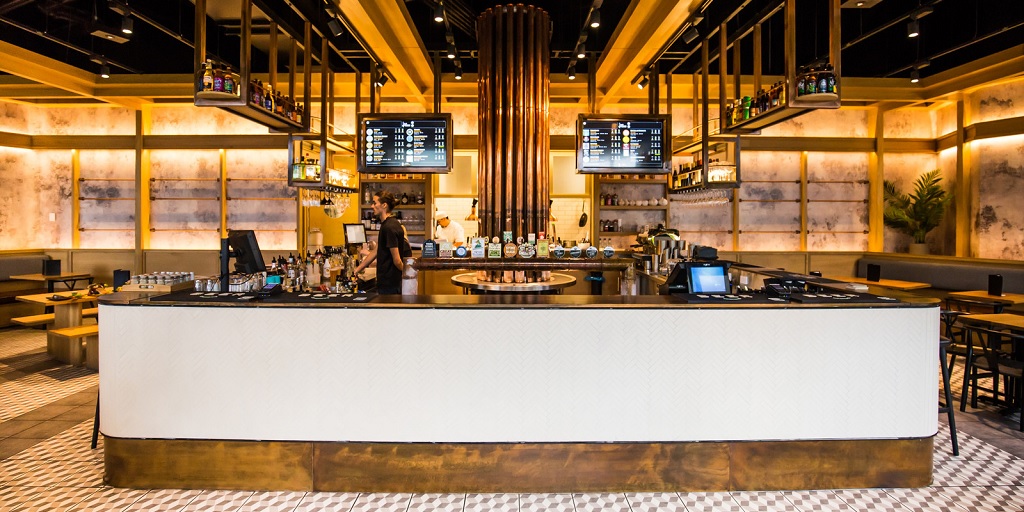
Tapworks at Westfield Chermside in Brisbane
As breweries diversify and multiply, they’ve found themselves in the unlikeliest of places.
In the past few months Sweet Amber launched at an Adelaide shopping centre, Malt Shovel announced its opening at the Sunshine Coast’s Stockland Birtanya, Gage Roads took up occupancy at the Optus Stadium in Perth leading to record beer sales this year, whilst Capital Brewing Co and Stomping Ground scored deals at their respective city airports highlights a trend towards craft beer finding itself in some very ‘un-brewery-like’ spaces.
Ready-made footfall, daily exposure to new audiences, and the support and experience of landlords that have been in the game for decades is appealing, especially in an increasingly competitive market where many brewers were confined to industrial areas.
But things are changing. Traditionally the home of chain outlets featuring mainstream beer brands, shopping centres, stadiums and airports are taking a long hard look at their offerings, and are moving away from what David Kleiner, senior executive for retail leasing at global real estate company Colliers International, calls a “cookie-cutter approach” consisting of national, recognisable chains and franchises.
This marks a step change in attitudes to breweries in mainstream retail. Glenn Vos, founder of Tapworks craft beer bar in Brisbane’s Westfield Chermside shopping centre, Laurence Kain, owner of Capital Brewing Co, which recently signed up to space in Canberra Airport, and Colliers’ David Kleiner each discussed the trend, and have provided some advice to breweries looking at making the move to a more mainstream setting.
Cultural shift
Glenn Vos is the founder of Tapworks, which opened in Brisbane’s Westfield Chermside in Brisbane last year, a shopping centre which has ‘defied retail gloom’ and passed the $1 billion-turnover mark this year. Part of this is down to it’s more unique ‘resort-style-dining and leisure precinct, of which Tapworks is part.
Needless to say the footfall alone would be worth quite a lot of inconvenience for any venue, but Vos said he was a bit apprehensive about how it would work.
“My brother and I were quite scared to have a craft beer bar in a shopping centre initially, but I wouldn’t class this as a shopping centre – it’s a dining precinct that’s separate from the retail section, and it’s out of this world – it’s got a great atmosphere.”
This is ‘experiential’ shopping – where operators will offer a full experience at a shopping centre including cinemas, bowling, arcades, and restaurants, open from morning until evening in an effort to keep customers in longer, spending more.
It’s been a pivotal move and growing trend for developers and landlords who are looking to set their retail projects apart.
It’s also a chance for many more local and niche businesses – like breweries – to thrive in what traditionally has been a ‘big business’ setting. But it requires a bit of adjustment, so if you’re not ready to compromise, a shopping centre setting might not be for you.
“We went in with the concept of a beer for everyone,” Vos explained.
“We have Great Northern on tap and we’re not afraid to put on mainstream beers – people might say we’re not a ‘true’ craft beer bar because of that.”
The benefits
Apart from a steady stream of potential customers from a range of demographics which shopping centres, airports and CBDs attract, being a small business in a retail machine can have major benefits.
Vos said that Westfield doesn’t deserve the reputation of being ‘ruthless’, which some critics have thrown its way.
“I’ve learnt more from Westfield that anyone could ask for. Even going through the design process, they’ve got a lead designer, they’ve got a marketing team,” he said.
“Honestly, what I’ve learned from them in 6 months would take 10 years to learn on your own.”
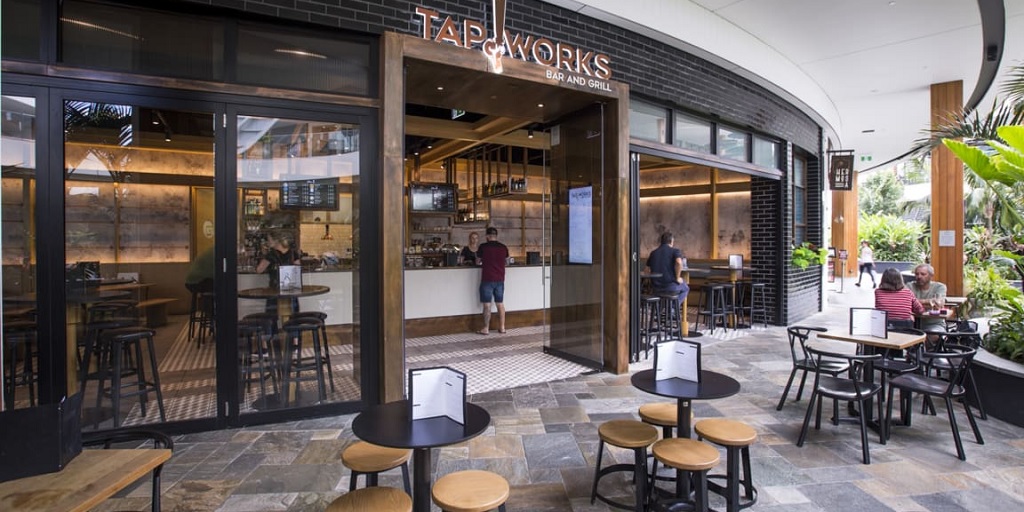
Tapworks craft beer bar at Westfield Chermside
Laurence Kain of Capital Brewing Co agreed, saying that there are some major differences between starting out on your own and setting up a venue with the help of experienced operators.
“It’s not undercapitalised for a start, you can go and hire really good architects to work on the design and planning, instead of drawing it on a napkin and giving it to a mate,” he explained.
“They have more refined processes and systems, and staff that work solely on planning and development.
“We’re starting to work more like that ourselves, as we’ve grown a bit more.”
This input and support comes at a price though.
“Everything has to be approved, everyone says it’s annoying, but they’ve just opened hundreds of Westfields anddeveloped so much experience, you need to rely on that experience – they’ve had a big part in our success,” said Vos.
How to do it
To take advantage of the growing demand for unique operators, breweries will need to work with well-established businesses, one which will probably have due diligence requirements beyond what they may have been faced with before.
The process of signing a lease at a shopping centre, CBD or airport might be obvious, but it’s not necessarily codified anywhere.
“Information requested from a developer perspective [includes things like] a short to medium term business plan, marketing objectives, an idea of who is your target audience, and how you plan on competing in the first few years,” explained David Kleiner of Colliers.
Landlords will want to know the nitty gritty of running a brewery. Fashion outlets and more standard food and drink occupants are better-known quantities in terms of what costs apply and what services they require, whereas breweries and taprooms are not.
“When opening up a small bar or brewery, it’s important for landlords and developers to have some concepts drawn up on the front of house and retailer bay areas so they can visualise it.
“Activation is one of the key elements. How are you going to activate the space and integrate with the rest of the complex? What food options are you going to be provided? Will you find a food partner within the centre or have your own kitchen and provide your own menu?
“This is a whole new landscape that a lot of existing centres aren’t ready to entertain at this stage,” Kleiner said.
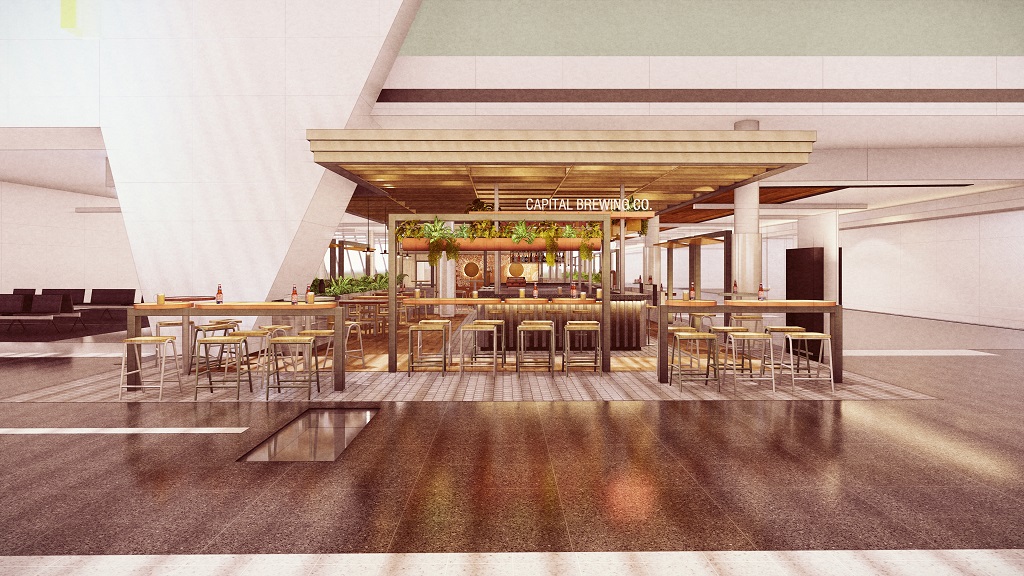
Capital Brewing Co at Canberra Airport
It’s also best to have an idea of planning applications, zoning conditions and requirements and liquor licensing before applying, he advised.
“It comes down to the developer itself and what resources they have on hand. Some of your Westfields and AMPs will have someone in house that can help, but you can’t rely on that.
“So before you start making contact, understand planning restrictions and everything around licencing, and understand your concept before you pitch.”
Indeed, the more you know about local zoning the better, and it will help to know the leanings of the local council too, as although many shopping centres aren’t on industrial zoned land, rezoning is a possibility with the right council.
Landlords and developers will also want to know wholesale and retail projections, he explained.
“One thing landlords love to do is try to get percentage rent in the commercial terms, so once you hit certain sales targets, you pay higher rent.
“[As a brewery] projected manufacturing sales should be excluded from this,” he said.
This is because it’s up to the retailer themselves to convert traffic into sales, but off-premise, wholesale sales should be considered separately.
Weight loadings and service requirements for equipment, energy requirements (especially important if the venue will include a working brewery) height restrictions for tanks, waste and odour control, are especially important in an enclosed shopping centre setting, management plan for dangerous materials used in manufacturing, storage and how it might affect building insurance for the landlord. Basically, it’s complicated.
Colliers associate director for retail leasing in South Australia, Jordan Schmidt , said that despite the prep work that will go into a brewery’s application to lease a shopping centre site or similar, landlords need to be considering the needs of more in-demand operators.
“There are a lot of premises out there that would make exceptional small bars or breweries, but the mentality of the landlord is that operators come in, do all the work themselves and start trading.
“But they need to make some sacrifices and put services in place to attract these operators – understanding a brewery’s category one works [gas lines, electrical, underfloor drainage etc.] and make improvements to the property without expecting to take it all out when the lease expires. It’s a two way street.”
When it comes down to it though, it’s about finding a deal that is mutually beneficial.
“That’s the whole plan with commercial terms. We want to see a return on investment for the landlord but also a return on investment for the operator as well,” said Schmidt.
Give the customer what they want
One of the reasons breweries are getting their time in the spotlight and are in-demand from a landlord’s perspective is the growth in popularity of craft beer.
It’s gotten to the point where landlords and developers are actively seeking breweries to be tenants in new developments.
“The reputational image people have with shopping centres is that it’s a high rental to pay, so they wouldn’t traditionally be knocking down the doors of shopping centres.
“Now it’s very much the developers going out and identifying specific operators that they think are required for that demographic or centre.”
Kain from Capital Brewing Co explained it as a response to consumer demand.
“More and more operators are wanting to deal with independent breweries. Customers want to engage in that story.
“It’s a really good sign. Aussies want independent, Australian-owned products. “
He compared the growth in popularity of craft beer to that in the US.
“You can go to a baseball stadium anywhere and get a local beer. That’s the way it should be.
“Every time we sell a pint of beer, that’s money that’s staying in the local community. It doesn’t matter where you’re selling it, whether it’s a stadium, an airport, or a Westfield, everyone’s winning.
“Larger organisations like shopping centres, airports, stadiums, they know their consumer base wants products that have a genuine story behind them and the story and provenance is really important to people now.”

